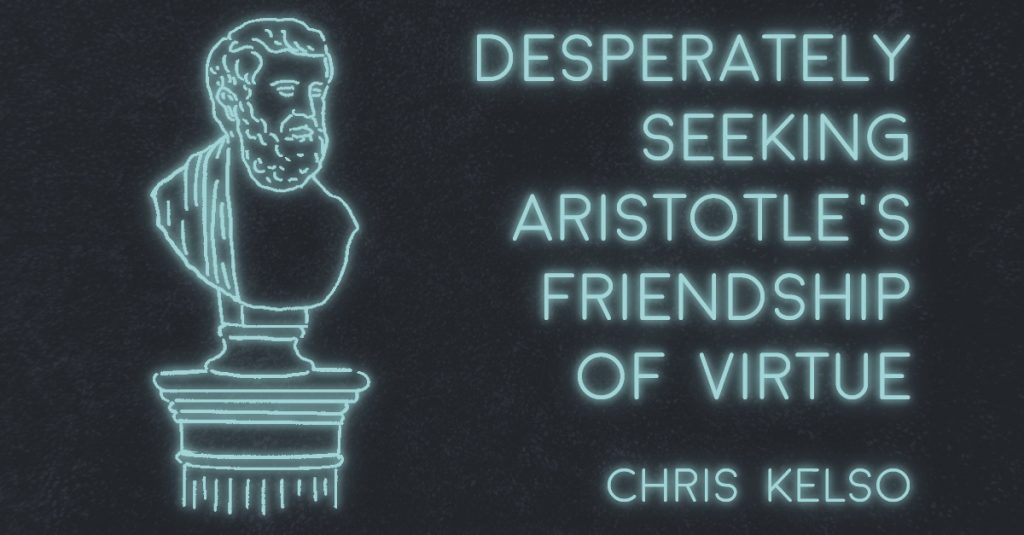Let’s argue that reality is plural: the solipsistic loneliness of individual perception becomes our first hurdle. We try to get over that by sharing some kind of rudimentary interior with others—where common goals and grammars can unite and define us as joint proprietors of a greater cognitive space. So how do you deal with people not liking you? What strategies can you call upon when you reach out for connection only to find an opposing electrical charge exerting its repulsive force against you? It seems strange to imagine that in the age of social-media anyone would reject this idea of a cognitive space of mutual connection, but it’s harder to attain than you might think. Well, it’s harder for me at least.
It sounds cynical but sometimes, no matter how many ways you attack this complex endeavour with reasoning there is simply no way in. Some people just don’t want to share an interior with you. In truth, most people don’t. Which means that even if reality is plural, our experience of it is doomed to be paradoxically solitary and singular. Knowing that truth doesn’t make the problem any easier to live with. So, is this just the end of friendship for Chris Kelso? The optimist in me says ‘no’. The other voices say ‘mmm, well…maybe’.
When you write books about critter-states, child murderers and psychosexual trauma, it might seem like other people’s opinions aren’t all that important to you in the first place. But that’s not true. I write to exorcise my sadness and put some distance between my day-to-day self and those grim fascinations. Writing is to be a friend of wisdom. The books are rarely ever an expression of how I feel or what I enjoy. In fact, I have yearned after stable conventions since I was a young boy. Sure (at my lowest ebb, when I felt it had eluded me) I battled against conventional structures, but always in the secret hope that it would eventually come to me of its own accord. Like a jilted lover hell-bent on retribution. An arsenal of mind-games and denial at my disposal. But I want(ed) friendship. I always wanted a good job and the status that brought. I wanted a place in society. Self-fucking-actualisation. And Maslow was right when he outlined his tenets in the hierarchy of needs (although having critical ‘needs’ will make you inherently ‘needy’, and this is also unattractive). I want to believe in goodness and an afterlife. I want to believe in romance and meaningful connection. Alas, this is the loneliest I have ever felt. All these conventions continue to allude me and I need to make peace with another harsh truth: my own undesirable status as a fundamentally needy soul navigating the morgue of human indifference. Losing the optimist soul. Accepting the void.
And that’s what this is, I suppose—this, right here. I’m trying to articulate something so I can connect with someone out there in the great collective abyss. Shine a light on it all. But dark matter only consumes; it neither reflects nor absorbs the light. Only eats it.
Aristotle defined friendship as reciprocated goodwill.
‘In poverty as well as in other misfortunes, people suppose that friends are their only refuge.’
Goodwill certainly seems to be in abundance on a superficial level, but does it have genuine truth or is it some kind of trivial social camouflage? If it did then surely connection would be simpler and would occur on a more regular basis. I’m also aware that the materiality of our reality conditions the connection of everything with everything else. I know we are cosmically bound, like the milling atoms of a crystal—interdependent particles oscillating together in the quest for structural integrity. And as I step into a new profession with demanding and stressful challenges, friendships become more important, yet somehow less accidental and more intentional, albeit still fate-pending. Friendship becomes about utility, survival. The kind where there is no real reciprocal affection. Two cold bodies clutching hold of each other in a superficial embrace as they spiral into apathy together. These are usually temporary relationships and these are where I find myself dwelling of late. And usually it’s me who needs more. I often try to break this shallow barrier with sincere acts and a giving nature. Because I need the friendship of virtue in my life. Unfortunately, no one has the patience required. My ‘needs’ appear ‘needy’. And my overtures of friendship deflect off chitinous eyes and ears. My gifts of connection pass through transparent hands and crash hopelessly to the floor.
I am lucky to have love in my life. I have a fiancé who connects with me. She represents the world of reciprocity that I craved. But what of fraternity? That’s been a different story entirely. But so what? An optimist resides inside my heart, muted but present. I’ll just have to wrestle with undesirable status until the black soup of dark matter takes me beneath its well. B.R Yeager once told me that ‘humanity sees the void as a vacuum/an absence only because we aren’t tuned to perceive what resides there, and as conscious entities we put consciousness on a pedestal.’ So, this struggle to elevate consciousness through connection and shared experience is perhaps folly. Dying alone doesn’t frighten Yeager because, as he says, ‘I imagine my consciousness will just disappear, become other energy, scatter, etc. I won’t be aware of it or its ramifications, and that’s strangely comforting.’
Maybe there will be something beyond. In the dark matter we can’t see. A new world of simple connection and reciprocity. But that’s the optimist talking…

